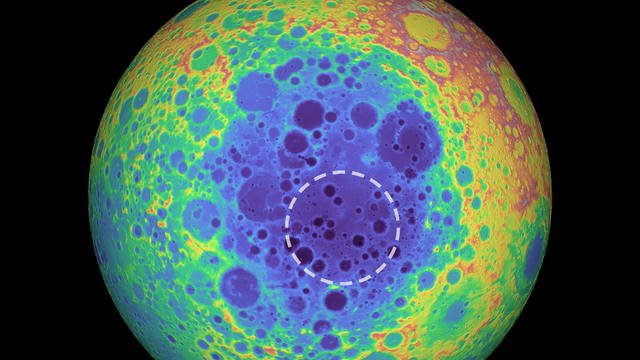Lunar Mass Anomaly Found

At roughly 1600 miles, ~2500 kilometers, wide and 8 miles, 13 kilometers, deep, the Moon's South Pole-Aitken basin is the largest known crater in the solar system. Stretching a distance comparable to that between San Antonio, Texas and New York City, across about 1/4th of the Moon's circumference (just under 11,000 kilometers), the only reason the basin cannot be seen from Earth is that it's located on the far side of the moon.
Using gravitational data from previous missions, measuring changes in gravity across the Moon, combined with lunar topological data, a team discovered a previously unknown mass hundreds of miles beneath the surface of the basin. The team currently has two hypotheses to explain the mass, the mass may be dense oxides resulting from the final cooling of a lunar magma ocean or that the mass is the result of the asteroid impact that formed the basin 4 billion years ago due to the asteroid's core becoming spread out in the Moon's upper mantle.
Regarding the size of the mass itself, lead author Peter B. James stated, “Imagine taking a pile of metal five times larger than the Big Island of Hawaii and burying it underground. That’s roughly how much unexpected mass we detected,”
Read more: http://rsci.nl/c5l
Read more: http://rsci.nl/np2
Read more: http://rsci.nl/c47
Image: NASA, University of Arizona